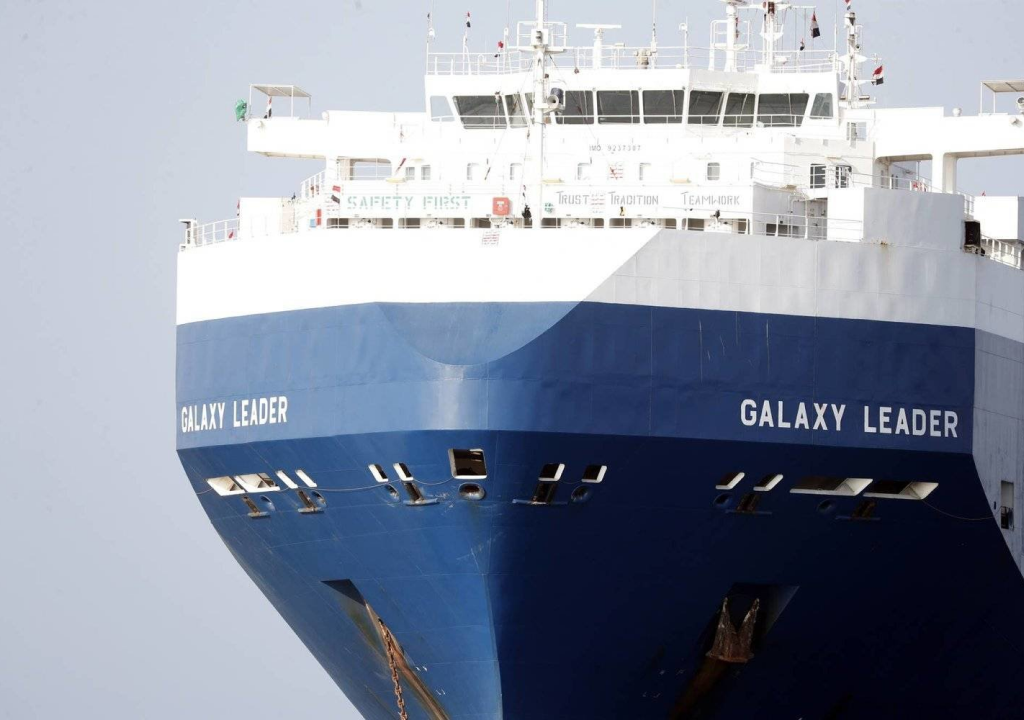The Red Sea acts as a vital maritime corridor, facilitating the shortest shipping route between Europe and Asia. With around 12 percent of global trade passing through this crucial waterway, any disruption poses a significant threat to the global economy, particularly impacting Singapore, closely tied to trade between Asia and Europe.
Since November 19, a series of over 20 assaults on commercial vessels in the southern Red Sea and the Bab al-Mandab Strait has unfolded. The Houthis, a militant group controlling much of Yemen, claim responsibility, targeting ships associated with Israel or destined for Israeli ports. This poses a direct threat to the global supply chain.
Responding to the escalating situation, Operation Prosperity Guardian, a multinational naval force led by the United States, has been deployed to secure the seaway and intercept Houthi assaults. US warships successfully defended a Singapore-flagged container ship operated by Maersk, sinking three out of four Houthi boats.
In the aftermath, Iran deployed a warship to the Red Sea, raising tensions further. Major container-shipping companies like Maersk, Hapag-Lloyd, and the Mediterranean Shipping Company have adjusted routes to avoid the affected area, causing significant disruptions in one of the world’s busiest trade lanes.
A central concern arises regarding whether the challenges in the Red Sea could instigate a supply chain crisis, potentially amplifying the impact on an already slowing global economy. The issues in the Red Sea are not isolated, as the Panama Canal, responsible for 5 percent of seaborne trade, faces challenges due to low water levels linked to drought. Operating at just 55 percent capacity, the canal encounters ongoing restrictions, with plans to increase transit slots from mid-January.
The necessity for rerouting, resulting from these challenges, disrupts the intricate synchronization integral to global shipping. This disruption could trigger a bullwhip effect, a supply chain phenomenon where minor fluctuations escalate and cause significant repercussions downstream. Diversions may lead to congestion at unprepared ports or a shortage of vessel space, with empty containers stranded unexpectedly, compounding delays and potentially impacting shipping routes beyond those connecting Europe and Asia.
Concerns extend to the potential impact on global prices, potentially contributing to inflation at a time when signs of a cooling trend had emerged. The duration of the disruption and the occurrence of additional shocks will play a pivotal role in determining the knock-on implications for inflation, as highlighted by experts.
The growing fragmentation of the global order raises problems for small and open economies like Singapore, which are deeply entwined with the shipping and logistics sector. Singapore has long benefited from the rules-based global order, but these days, the system is starting to show cracks, which makes it more difficult for the country to do business smoothly and disrupts the free movement of goods across borders.
Some Singapore based shipping companies like Pacific International Lines (PIL), has staunchly expressed its commitment to maintaining Red Sea services to ports in Yemen and East Africa. Despite ongoing operations, the company is implementing heightened security measures and maintaining constant communication with its vessels in the region. Amid uncertainties, freight forwarders foresee a tense period in the upcoming weeks, closely monitoring potential rate increases, last-minute route diversions, and formulating alternative plans for clients. The recent attack on the Singapore-flagged Maersk Hangzhou has intensified concerns, sparking a frenzied scramble for adjustments in response to Maersk’s decision to suspend all sailings through the Red Sea. Other shipping companies are also closely observing the situation, recognizing the potential impact of their decisions on the Singapore economy.
These challenges extend beyond the realm of shipping enterprises, affecting food importers in Singapore. X-Inc, overseeing food distributors FoodXervices and GroXers, grapples with delays in European shipments, leading to additional costs. The prevailing sentiment in the maritime industry underscores the difficulty of navigating a series of unexpected challenges, ranging from the pandemic to the Suez Canal incident, and now the complex situation in the Red Sea.
On January 3, Singapore joined 13 other nations in condemning the Houthi militants’ attacks, cautioning of unspecified consequences if the assaults persist. This condemnation followed a similar call from members of the United Nations Security Council, emphasizing the need to halt attacks in one of the world’s most critical shipping lanes.
The Houthies pose a grave threat to the global supply chain, the backbone of the world economy. This risk resonates worldwide, with Southeast Asia, especially Singapore feeling the impact keenly. In response, these nations take decisive government-led initiatives, standing firm against this disruption to safeguard their pivotal roles in the interconnected dance of global trade. The threat transforms into an opportunity for unity and resilience, showcasing the unwavering spirit that binds nations even amid challenges.







